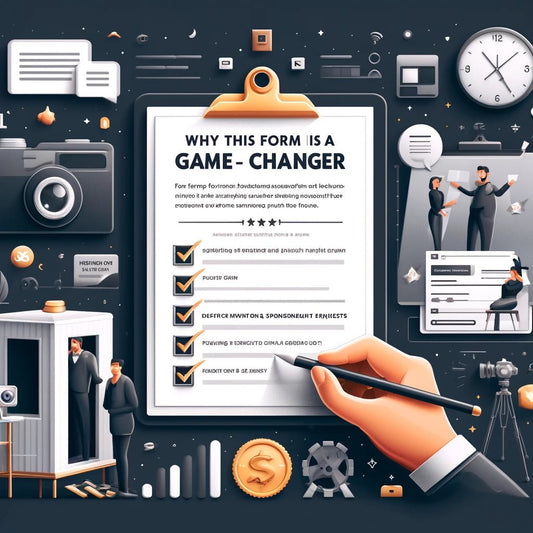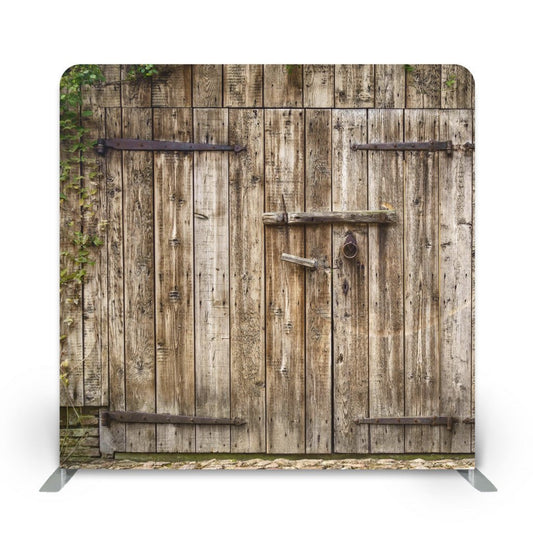
10 Unique and Engaging Corporate Event Ideas for Maximum Team Building and Networking Success
Share
.jpg)
Corporate events are an essential component of an organization's strategy to foster stronger relationships, boost employee morale, improve team building and communication, and showcase company culture and values. These events provide a platform for teams to connect and engage in a meaningful way, ultimately contributing to the success of the company.
Factors that need to be considered when planning corporate events include budget allocation, defining event objectives and goals, understanding the target audience, selecting an appropriate event size and venue, and carefully scheduling the event to ensure maximum participation and impact.
To create memorable and unique corporate events, organizations can explore various ideas such as outdoor team building activities, themed parties and costume events, charity or philanthropy events, interactive workshops and seminars, and technology-driven experiences. These ideas provide an opportunity for employees to engage in exciting and novel experiences that go beyond the traditional corporate setting.
Executing a successful corporate event requires careful planning, including setting clear objectives, understanding the preferences and interests of attendees, creating a detailed event timeline, collaborating with reliable vendors and partners, and gathering feedback for future improvements. These tips can help ensure that the event is well-organized, enjoyable, and achieves the desired outcomes.
By recognizing the benefits, considering the necessary factors, exploring unique ideas, and following practical tips, organizations can create impactful corporate events that contribute to a positive work culture and drive overall success.
Benefits of Hosting Corporate Events
When it comes to hosting corporate events, the benefits are far-reaching! From building stronger relationships to boosting employee morale, improving team building and communication, and even showcasing company culture and values, these events have a lot to offer. Get ready to witness the transformation of your workplace as we dive into the numerous advantages of hosting corporate events. Let's explore the ways in which these gatherings can positively impact your organization and create an environment of unity and growth.Building Stronger Relationships
Building stronger relationships is a crucial benefit achieved through hosting corporate events. These events provide opportunities for employees, clients, and stakeholders to interact in a more relaxed and casual setting. Activities like team-building exercises, networking sessions, and social gatherings foster connections and promote a sense of camaraderie, ultimately contributing to building stronger relationships. By encouraging open communication and collaboration, corporate events cultivate stronger relationships and enhance teamwork within the organization. These events also enable participants to understand and appreciate each other's skills, strengths, and contributions, leading to improved working relationships and better productivity. Thus, it is essential to prioritize building stronger relationships when planning and executing successful corporate events.
Boosting Employee Morale
Boosting employee morale is crucial for a positive work environment and increased productivity. Here are some effective strategies to boost employee morale and uplift their spirits:
Recognition and Rewards: Acknowledge and appreciate employees' hard work and achievements through rewards, incentives, and verbal recognition to enhance their morale.
Open Communication: Encourage open and transparent communication to make employees feel heard, valued, and involved in decision-making processes, thereby boosting their morale.
Professional Development: Provide opportunities for skill enhancement and career growth through training, workshops, and mentoring programs, which can significantly contribute to boosting employee morale.
Work-Life Balance: Promote a healthy work-life balance by offering flexible work schedules, wellness initiatives, and paid time off, which positively impacts employee morale.
Team Building Activities: Organize team-building events, retreats, or fun activities that foster positive relationships and boost morale among employees.
Improving Team Building and Communication
- Engage in team building activities such as trust falls, group exercises, and team challenges to improve team building and communication, strengthening relationships and fostering effective communication.
- Arrange regular team meetings where team members can openly communicate, share ideas, and address any challenges or conflicts, thus improving team building and communication.
- Encourage team members to participate in team-building workshops or seminars to enhance their collaboration and communication skills, contributing to improving team building and communication.
- Implement a mentorship or buddy system where experienced employees can guide and support new team members, encouraging effective communication and knowledge sharing, ultimately improving team building and communication.
- Organize team-building events outside of the office, such as retreats or outdoor activities, to create a relaxed and fun atmosphere that promotes team bonding and open communication, thereby improving team building and communication.
Showcasing Company Culture and Values
When planning corporate events, it is essential to showcase company culture and values naturally. This is crucial for building a strong brand image and fostering a positive work environment. Here are some effective ways to achieve this:
- Create a themed event that aligns with your company's values and focuses on sustainability, especially if your brand is eco-friendly.
- Incorporate company traditions and rituals into the event, such as recognizing employee achievements and presenting awards.
- Offer opportunities for employees to share their experiences and stories that highlight the company culture.
- Showcase company values through interactive activities that promote teamwork, collaboration, and inclusivity.
- Include elements of community involvement or corporate social responsibility to demonstrate the company's commitment to making a positive impact.
Factors to Consider When Planning Corporate Events
When it comes to planning corporate events, there are several key factors that must be taken into consideration. From budget constraints to event objectives and target audience, each element plays a crucial role in crafting a successful gathering. In this section, we'll explore these important factors and how they can impact the overall event experience. Get ready to uncover valuable insights and tips that will help you plan memorable and impactful corporate events.Budget
When organizing a corporate event, the budget plays a vital role in the planning process. It is important to consider the budget when making decisions. Here are some helpful tips for effectively managing your event budget:
1. Begin by determining your overall budget based on the resources available and the goals of the event.
2. Allocate funds specifically for essential expenses like venue rental, catering, entertainment, and audio-visual equipment.
3. Take the time to research and compare prices from various vendors. This will enable you to make well-informed decisions.
4. Explore cost-saving options such as negotiating discounts, utilizing in-house resources, or selecting off-peak event dates.
5. Keep a careful track of expenses throughout the planning process and make adjustments to budget allocations as necessary.
6. Prioritize your expenses based on how they contribute to achieving the objectives of the event.
7. Plan ahead for unexpected costs by setting aside a contingency fund.
8. Regularly review and analyze your budget to identify potential areas for cost savings or adjustments.
By managing your budget diligently, you can ensure the success of your corporate event while staying within your financial limitations.
Event Objectives and Goals
To create successful corporate events, it is crucial to establish clear objectives and goals. This helps guide the planning process and ensures that the event aligns with the company's overall vision. Here are some key factors to consider when determining event objectives and goals:
- Identify the purpose of the event, whether it's to launch a new product, enhance brand awareness, or foster client relationships.
- Set specific and measurable goals, such as generating a certain number of leads, increasing customer retention, or improving employee engagement.
- Consider the target audience and tailor the event objectives to their needs and preferences.
- Align the event objectives with the company's overall business objectives to create a cohesive strategy.
- Regularly evaluate and track progress towards the event objectives to ensure they are being met.
Fact: According to EventMB, 58% of companies measure their event ROI based on achieving event objectives and goals.
Target Audience
When planning corporate events, the success of the event heavily depends on considering the target audience. The target audience, which refers to the specific group of people the event aims to cater to and engage with, plays a vital role in shaping the event's outcome. To ensure the event resonates with attendees, it is crucial to have a deep understanding of their preferences, interests, and demographics. By thoroughly analyzing the target audience, organizers can customize the content, activities, and overall experience accordingly. This approach guarantees a relevant, engaging, and meaningful event, leading to improved attendance rates and increased satisfaction. It's important to keep in mind that the target audience may differ based on the type of corporate event, be it employee appreciation events, client networking events, or industry conferences.
Event Size and Venue
When planning corporate events, considering the size of the event and the venue is crucial for its success. Here is a breakdown of factors to consider:
| Event Size | Choose a venue that can comfortably accommodate the number of attendees and any activities or equipment needed. |
| Venue | Select a venue that aligns with the event's purpose, theme, and audience. Consider factors like location, accessibility, amenities, and ambiance. |
Pro-tip: When selecting a venue, always visit in person to ensure it meets your requirements and can create a positive impression on your guests.
Timing and Scheduling
Unique Corporate Event Ideas
Looking to spice up your corporate events? Look no further! This section dives into some unique ideas that are sure to make your events memorable. Discover the excitement of outdoor team building activities, the fun of themed parties and costume events, the sense of purpose with charity or philanthropy events, the knowledge gained from interactive workshops and seminars, and the cutting-edge experiences brought by technology-driven interactions. Get ready to take your corporate events to the next level with these innovative ideas.Outdoor Team Building Activities
Outdoor team building activities are an excellent method for promoting collaboration, improving communication, and boosting morale among staff members. These activities offer a refreshing escape from the office environment, allowing team members to connect on a more personal level. There are several popular outdoor team building activities that can be considered:
- Scavenger Hunts: These hunts require teams to work together to solve clues and locate hidden items, which promotes problem-solving skills and teamwork.
- Ropes Courses: Participants navigate through high obstacle courses, encouraging trust and fostering teamwork.
- Team Sports: Organizing friendly competitive sports like soccer or volleyball can promote teamwork and build camaraderie.
- Outdoor Problem-Solving Challenges: Activities such as building a shelter or solving a complex puzzle encourage critical thinking and teamwork.
- Adventure Races: Teams compete in a series of physical and mental challenges, fostering teamwork and resilience.
Themed Parties and Costume Events
Themed Parties and Costume Events can add a fun and memorable element to corporate events, boosting employee engagement and creating a unique experience for everyone involved. Here are some ideas to consider:
- Decades: Have employees dress up in outfits from different eras like the 1920s or 1980s.
- Movies or TV Shows: Choose a popular movie or TV show theme and encourage attendees to come dressed as their favorite characters.
- Sports: Organize a sports-themed event where attendees can wear jerseys and participate in friendly competitions.
- Fantasy: Create a magical atmosphere with a fantasy-themed party, with costumes inspired by fairy tales or mythical creatures.
- Cultural: Celebrate diversity by hosting a costume event that focuses on different cultures, encouraging attendees to represent their heritage or favorite destinations.
Charity or Philanthropy Events
- Charity or philanthropy events provide an opportunity for companies to give back to the community and make a positive impact.
- These events can include fundraisers, volunteer activities, or partnerships with non-profit organizations.
- Benefits of charity events include enhancing the company's reputation, fostering team building and employee morale, and creating meaningful connections with the community.
- Examples of charity events could be a charity run or walk, a food drive, or a partnership with a local school or shelter.
- Engaging employees and encouraging their participation in the event is crucial to its success.
Interactive Workshops and Seminars
Interactive workshops and seminars are highly effective corporate event ideas for engaging participants and promoting learning. They provide a platform for exchanging ideas, acquiring new skills, and fostering collaboration among attendees. Here are some benefits and considerations when planning interactive workshops and seminars:
| Engagement: | Interactive sessions encourage active participation and enhance learning outcomes. |
| Networking: | Participants can interact and network with industry experts and peers, fostering valuable connections. |
| Knowledge-sharing: | Workshops and seminars offer opportunities to share best practices, insights, and emerging trends. |
| Customization: | Tailor the content and format to suit the specific needs and interests of the attendees. |
Interactive workshops and seminars have a long-standing history of facilitating knowledge exchange and skill development. From ancient Greek symposiums to the modern-day TED Talks, these interactive events have fueled intellectual growth and innovation throughout history.
Technology-Driven Experiences
Technology-driven experiences can significantly enhance corporate events, making them highly engaging and unforgettable for all participants.
- Virtual Reality (VR): Immerse attendees in interactive experiences and simulations by incorporating VR headsets
- Augmented Reality (AR): Enhance the event with real-time information and interactive elements through AR technology
- Live Streaming: Enable remote attendees to virtually participate in the event through live streaming platforms
- Gamification: Promote interaction and friendly competition by integrating game elements such as leaderboards and challenges
- Social Media Integration: Encourage attendees to share their event experiences on various social media platforms using event-specific hashtags
During a recent corporate conference, organizers created a cutting-edge, technology-driven experience by installing interactive touchscreen displays throughout the venue. These displays allowed attendees to actively interact with the content, access essential event information, and network with fellow participants. This innovative utilization of technology not only maximized interactivity but also fostered networking opportunities and facilitated the exchange of valuable information among attendees.
Tips for Successful Corporate Event Execution
Executing a successful corporate event requires thoughtful planning and consideration of attendees' needs. In this section, we'll uncover valuable tips to make your event memorable. From setting clear objectives and tailoring the experience to attendees' preferences, to creating a well-structured timeline, and collaborating with reliable vendors and partners – we've got you covered. Prepare for an informative journey packed with practical insights and strategies to ensure your corporate event leaves a lasting impression.Plan Ahead and Set Clear Objectives
- When organizing a corporate event, it is crucial to plan ahead and set clear objectives to guarantee a successful outcome.
- Planning ahead and setting specific and measurable objectives that align with your goals should be the first steps in the process.
- Ensure you set a realistic timeline for planning and execution to stay on track.
- Allocate resources and establish a clear budget to ensure smooth execution.
- It is important to communicate your objectives to stakeholders and team members for better collaboration and understanding.
- Create an action plan with key milestones and tasks that will help you stay organized and focused.
- Regularly review and track progress towards your objectives to ensure you are heading in the right direction.
- Make necessary adjustments as needed to stay on track and achieve your desired outcomes.
- After the event, evaluate the results against your objectives to gain insights for future planning.
By following these steps, you can ensure that your corporate event is well-planned and aligned with clear objectives.
Consider Attendees' Preferences and Interests
When planning a corporate event, it is essential to consider the preferences and interests of the attendees to ensure maximum engagement and satisfaction. It is crucial to tailor the event content to the attendees' industry to make it relevant and valuable. Additionally, providing ample time for attendees to connect and network with each other fosters valuable relationships. It is also important to include interactive workshops, discussions, or panels to keep attendees actively involved and interested. Offering customizable experiences or sessions that cater to different preferences and interests is highly recommended. Finally, seeking input from attendees before the event through surveys or feedback forms helps understand their preferences and enables the incorporation of their suggestions into the program.
Create a Detailed Event Timeline
Create a Detailed Event TimelineIn order to ensure successful corporate event planning, it is crucial to create a detailed event timeline. This will help to ensure that all necessary tasks are completed in a timely manner, preventing any last-minute hiccups. Here are the steps to create an effective event timeline:
- Define the event date and work backward: Start by determining the date of the event and then list all the tasks that need to be completed in the weeks leading up to it.
- Identify milestones: Break down the event preparation into major milestones, such as securing the venue, sending out invitations, and finalizing the program.
- Estimate task durations: Assign estimated durations for each task to determine when they should be started and completed.
- Assign responsibilities: Delegate specific tasks to team members or departments to ensure clear accountability.
- Create a visual timeline: Use a calendar or project management tool to create a visual representation of the timeline, indicating when each task should be completed.
- Monitor progress: Regularly review the timeline to monitor progress and make necessary adjustments as needed.
- Build in contingency: Allow for some buffer time in the timeline to account for unforeseen delays or changes.
- Communicate the timeline: Share the timeline with all stakeholders involved in the event, including team members, vendors, and attendees.
Collaborate with Reliable Vendors and Partners
Collaborating with reliable vendors and partners is vital for the success of corporate events. Here are some key reasons why:
Gather Feedback for Future Improvements
Gathering feedback from attendees is crucial for improving corporate events in the future. Here are some strategies to consider:
- Conduct surveys: Send out post-event surveys to gather feedback on various aspects of the event, such as the venue, food, speakers, and overall experience.
- Encourage open communication: Create a welcoming atmosphere where attendees feel comfortable sharing their thoughts and suggestions during the event.
- Utilize social media: Monitor social media platforms for mentions and comments about the event, and actively engage with participants to gather their feedback.
- Hold debriefing sessions: Organize meetings with key stakeholders to discuss the event's successes and areas for improvement.
- Implement changes: Use the feedback received to make necessary adjustments for future events, ensuring that participant input is valued and acted upon.
By actively seeking and acting on feedback, organizers can continually gather feedback for future improvements to their corporate events and create an even better experience for participants.
Frequently Asked Questions
What are some fun team spirit activities for a corporate event?
Team spirit activities for a corporate event can include hosting a company-wide talent show, organizing team competitions or games, or having themed dress-up days throughout the week. These activities can bring employees together, foster camaraderie, and create a lively company culture.
How can I incorporate office decorating into a corporate event?
Office decorating can be incorporated into a corporate event by organizing a friendly office decoration competition, where teams or individuals can decorate their workspaces based on a specific theme. This can promote creativity, team collaboration, and add a festive atmosphere to the event.
Is it a good idea to have a "Bring Your Pet to Work Day" for a corporate event?
A "Bring Your Pet to Work Day" can be a fun and memorable addition to a corporate event. It allows employees to showcase their furry friends, promotes a positive work-life balance, and creates opportunities for socializing and bonding among colleagues.
How can I create memorable event experiences for attendees?
To create memorable event experiences for attendees, consider incorporating unique and interactive elements such as drone displays, live bands, impactful speakers, or engaging entertainment activities like casino games or escape rooms. These experiences can leave a lasting impression and make the event more enjoyable for participants.
What are some virtual corporate event ideas to engage remote teams?
Virtual corporate event ideas to engage remote teams can include online team building activities, virtual game nights, interactive workshops or trainings, and virtual happy hours. Utilizing video conferencing platforms and collaborative tools can help create a sense of connection and engagement for remote employees.
How can I plan a successful corporate team building event on a limited budget?
To plan a successful corporate team building event on a limited budget, consider cost-effective options such as organizing a DIY team building activity, utilizing free or affordable venues, seeking sponsorships or partnerships for event resources, and focusing on activities that require minimal expenses but still promote teamwork and collaboration.






